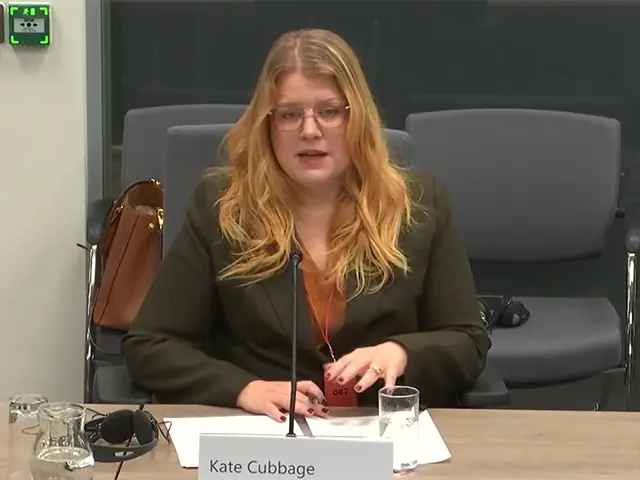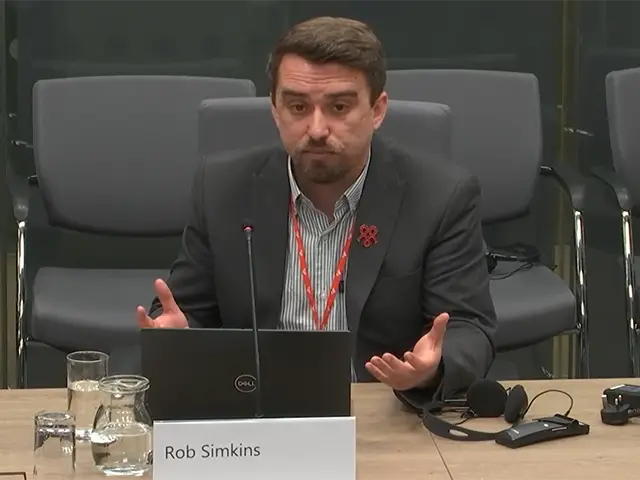Politics
Leanne Wood’s long campaign

 LEANNE WOOD was not at all satisfied with a fourth place finish in the 2015 General Election.
LEANNE WOOD was not at all satisfied with a fourth place finish in the 2015 General Election.
Her immediate response to the loss – and the mere hold of her three MPs – was to declare that the campaign for the National Assembly elections of May 2016 would commence without pause.
This most recent campaign has been the culmination of decades of political action: miner’s strike, devolution, various assembly elections, and the 2011 referendum.
Already in campaign mode, and convinced that there would have been a breakthrough in the General Elections with a few more weeks to campaign, Wood began a series of major engagements: visiting local constituencies, attending cultural events, making visits to schools and giving major addresses on politics and policy at Aberystwyth University. Linking up her network on the ground, Wood engaged local organisations in the campaign, giving speeches at party events and demonstrations, outlining her message for the May elections.
With the “What Next for Wales?” campaign in full gear, she decisively answered a quip by one of her aides Simon Thomas, who suggested that she was better suited to campaigning than to intellectual “stuff” (Wales Online, 12 May 2015). Wood countered by not only giving many speeches on policy and political affairs, but also by using the campaign itself to disseminate her ideas and build her network across Wales.
The long campaign has been energised by immense personal loyalty that Plaid members’ have for Wood’s leadership. No one questioned her strategy of an immediate campaign, but picked up their shovels and joined her work for a change of government in Wales.
Leanne Wood is certainly seeking national liberation for Wales. Yet, independence is her longest campaign. She is often asked by commentators how she squares her quest for a socialist republic with the pragmatic necessity of getting on with the “system as it is”.
She will answer that the “system as it is” is the result of historical action and events, and that the people of contemporary Wales have the same capacity for action and change. In a post-devolution framework, moreover, the National Assembly is a state in embryo, one which can be brought to fruition with the enhancement of its autonomy and powers, over eg. social security, healthcare, taxation, policing and criminal justice, natural resources, drug policy, land policy, airspace – and other powers appropriate for a European-oriented democratic republic and nation in its own right.
For Wood, Wales is a nation to come, one that will be built by the generations of those who live here, by a multi-lingual and multi-ethnic population, for the sake of a better life and a stronger, more local, democracy – one that serves the wishes and aspirations of Wales.
Leanne Wood was never going to be the usual politician.
Her expulsion from the National Assembly on her first day as AM was hardly auspicious – or was that her point after all? She was contesting, re-valuing, a distinctly British value – honour to the Queen – to the British sovereign – of one unelected versus Wood’s own democratic mandate.
Wood began her political career with a denunciation of British sovereignty over Wales. She campaigns now for the governance of Wales, for First Minister and the acceleration of the national process.
Yet, the building process, though it would be greatly accelerated by a Plaid victory, does not of itself require a nationalist government, but an intensified movement for home rule, enhanced powers, and compliance of the UK government with the 2011 referendum.
Wood has nearly perfected the campaign as a form of organising political change. A campaign is a real time affair that provides the vast array of individual events with a cohesive momentum. If one is committed to forming a new nation, one must cultivate the most broad-based and effective national outreach network, a campaign that is the process of nationbuilding itself.
In this way, even if she comes up short in May to form an outright government, Wood will have an even stronger voice for transformative politics as the leader of the progressive opposition (especially as the Tories will still hold Westminster), one that remains strongly linked to mass organisations on the ground, such as Adam Price’s Yes Cymru, and with the UK-wide progressive opposition in activist networks and in the UK parliament.
Currently contending with Labour for the leadership of the National Assembly, Wood’s long campaign has paid off, and even offers the chance for accelerated national transformation.
As momentum is moreover connected to political direction, the winds are clearly in the Wood’s favour as the necessity for a mature national framework has become increasingly urgent for the protection and development of Wales.
Community
‘Harrowing’ distress now the norm for unpaid carers in Wales

“HARROWING” levels of distress have become the norm for unpaid carers in Wales, a committee has heard, with charities warning of a support system “set up to fail”.
Kate Cubbage, director of Carers Trust Wales, told the Senedd’s health scrutiny committee: “There are too many carers who are reaching crisis point without any support.”
Ms Cubbage explained that most councils are supporting fewer than 500 carers, warning: “There are really, really high levels of unmet need within our communities.”
She told Senedd Members that staff are receiving trauma training to support their mental health due to the levels of distress they are seeing among carers.
Ms Cubbage pointed to a University of Birmingham study which found an increased suicide risk among unpaid carers akin to that of veterans who have seen active service.
“One in eight carers has made a plan to end their own life,” she said, calling for carers to be specifically considered in the Welsh Government’s suicide prevention strategy.
“One in ten has made an attempt… at a time when the average local authority has support plans for less than 0.5% of the caring population.”
Warning of deepening poverty in Wales, the witness expressed concerns about a 31% poverty rate among carers – “far higher” than the 22% in the wider population.
Ms Cubbage added that young carers miss more than six full school weeks each year, compared with pupils without caring responsibilities who miss nearer two weeks.

She told the health committee: “It’s no wonder young carers are achieving less at school. They are less likely to go on into further and higher education.
“And if they do make it to university, they’re less likely than their peers to actually graduate.”
Reflecting on a personal note, Ms Cubbage, a parent carer, said her autistic son has accessed services from ophthalmology to audiology over the past 16 years.
“I have never once been signposted to anything that would suggest that I am an unpaid carer or that I can access support… That kind of lived experience is really important.”
Rob Simkins, head of policy at Carers Wales, added: “Things are getting worse: anecdotally, we see that through our services but also that’s what the research tells us.”

He pointed to a Carers Wales survey which has shown a “shocking” 53% increase in the number of carers cutting back on food and heating.
Giving evidence on Wednesday December 17, Mr Simkins warned of a 39% increase in the number of carers reporting “bad” or “very bad” mental health since 2023.
“All the evidence that we’re collecting shows that this is going in one direction,” he told the committee, adding: “And that’s the wrong direction. It’s a bleak context.”
Mr Simkins said census data shows about 310,000 unpaid carers in Wales but research indicates the number could be nearer 500,000 – roughly 15% of the population.
He cautioned that charities across the country, including Carers Wales, are seeing real-terms cuts in funding from the Welsh Government every single year.
Mr Simkins warned of a “shocking” lack of data and a system “set up to fail” more than a decade on from the then-Assembly passing the Social Services and Wellbeing (Wales) Act.
Warning some councils cannot quantify how many carers’ assessments they could carry out over 12 months, he asked: “How on earth are you meant to collect data from unpaid carers and plan services if you can’t even figure out how many you can assess?”
Asked about carers’ assessments, he highlighted a lack of capacity within councils as he warned a “pitifully low number of carers go on to get any support at all”.
Greg Thomas, chief executive of Neath Port Talbot Carers Centre, told Senedd Members the voluntary sector is being increasingly asked to plug gaps without necessary funding.
He warned the jam is having to be spread “ever-more thinly”, creating a tension between reaching as many people as possible and not wanting to compromise quality of support.
“We’re not quite saying ‘no’ to people,” he said. “But we’re having to say a qualified ‘yes’ about what we’re able to offer… We’re massively overstretched, massively oversubscribed.”
Mr Thomas told the committee the carers’ centre has the required reach and expertise, concluding: “It’s almost give us the tools and we can do the job.”
If you have been affected by anything in this story, the Samaritans can be contacted for free, 24/7, on 116 123, or by email at [email protected].
Community
Pembrokeshire council tax rates could go up in 2026

THERE’S just a few days left to have your say on Pembrokeshire’s budget setting for the next financial year, which includes the potential for huge increases in council tax.
Pembrokeshire’s financial situation for next year is some £4m better off after a higher settlement from the Welsh Government, but the council still faces difficult decisions.
While council tax makes up a proportion of the council’s annual revenue, a crucial area of funding is the Aggregate External Finance (AEF) rate from Welsh Government.
Pembrokeshire was to receive a 2.3 per cent increase on its settlement, a total of £244,318,000, amounting to an extra £5,493,000, placing it at joint 13th of the 22 local authorities in Wales.
Now, following a Welsh Government and Plaid Cymru agreement, local authorities including Pembrokeshire have received a better financial settlement.
Speaking at the December meeting of Pembrokeshire County Council, while presenting a report on the outline draft medium term financial plan (MTFP) 2026-27 to 2028-29, Cabinet member for finance Cllr Alistair Cameron said the recent rise in the financial settlement from the Welsh Government had decreased the expected funding gap for the next financial year for the county from £17.7m to £13.6m, but stressed: “There are still increased pressures we are going to have to face.”
The closing date for completed responses to the public consultation is January 4.
The council, in its online consultation, says there are limited ways that the funding gap can be met:
- Increase the rate of council tax charged (each one per cent increase generates approximately £907,000 of additional income).
- Change the way services are provided and delivered – (efficiency gains, reduce what council does etc).
- Increase the amount charged for some services
Cllr Alistair Cameron, Cabinet Member for Corporate Finance and Efficiencies, has said: “It is vitally important that we get the views of as many members of the public as possible to help shape our future proposals with your priorities at the forefront.
“Everyone will be aware that it is increasingly difficult to balance the growing demands on the council but we are determined to put together a budget that enables us to continue to provide essential services for the people of Pembrokeshire.”
The actual setting of the budget and related council tax level along with any potential savings and cuts, will be decided at a later date, with committee scrutiny ahead of Cabinet considering a revised draft budget on February 9, before it is recommended to full council on February 20.
Business
Salon plans for Haverfordwest car valet site approved

RETROSPECTIVE plans to change a Pembrokeshire car sales/valet area to include a barber shop and tanning salon have been given the go-ahead.
In an application to Pembrokeshire County Council, Zizo Barbers & Affordable Cars, of Cambrian Place, Haverfordwest sought permission for the change of use of previously granted valet and car sales area, the works completed in 2024.
A supporting statement through agent Hayston Developments & Planning Ltd said the former commercial garage business has been operating in several guises from the premises for many years and has included petrol sales, motor servicing and repairs, MoTs, vehicle valeting, car sales and customer parking.
This followed on from a 2011 permission for the partial demolition of the original commercial garage, with a later approval for the site refurbishment to provide a workshop, valeting and offices for the existing car sales.
A supporting statement said: “The proposed update to a change of use involves the replacement of a car valeting service, which took place under a covered area at the rear of the site by a wash and valet operation – and restricting this service to those cars being sold at the Cambrian Place site. The use of a former office / store as a barber shop.
“The use of the former customer waiting area as a tanning salon including a new moveable timber shed for use as a meet and greet facility and as a car sales office. Provision of a communal parking area. Whilst retaining the principal use of the site for the sale of used cars.
“It is therefore suggested that the proposal will reduce both the elements of noise and the generation of dust whilst improving air quality as substantially fewer cars being power washed and valeted as well as the visual impact of these activities in this very public location – and with adjacent residential properties.”
Haverfordwest Town Council had objected to the scheme on highway safety grounds, but an officer report recommending approval said: “Highways colleagues have advised that the mixed use at the site is not likely to generate a significant number of trips that would lead to congestion and/or road safety issues due to the hours of operation are suggestive of visitors in the non-peak hours over the course of the day.
“In addition, highways colleagues have confirmed recorded accident history is negligible at the site, with one accident in 2023 at the nearby junction as a result of a rear shunt.”
It also said that, as the site lies adjacent to the A40(T) Welsh Government as a highway authority were consulted on the application, but has not not issued a direction in respect of this application.
One letter of objection had also raised issues of traffic and highway safety, chemical and detergent waste from the site and occasional activity after 5pm.
The report said the cessation of the valeting/washing use will reduce water usage at the site and any activity outside normal hours was an enforcement matter.
The application was conditionally approved by officers.
-

 Crime2 days ago
Crime2 days agoMilford Haven man jailed after drunken attack on partner and police officers
-

 News5 days ago
News5 days agoDyfed-Powys Police launch major investigation after triple fatal crash
-

 Crime2 days ago
Crime2 days agoTeenager charged following rape allegation at Saundersfoot nightclub
-

 Crime3 days ago
Crime3 days agoMan charged with months of coercive control and assaults
-

 Crime4 days ago
Crime4 days agoMan sent to Crown Court over historic indecent assault allegations
-

 Crime6 days ago
Crime6 days agoMan spared jail after baseball bat incident in Milford Haven
-

 Crime4 days ago
Crime4 days agoMilford Haven man admits multiple offences after A477 incident
-

 Crime3 days ago
Crime3 days agoWoman ‘terrified in own home’ after ex breaches court order




















